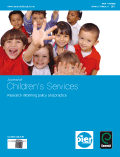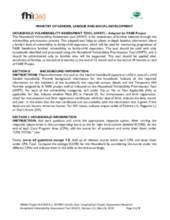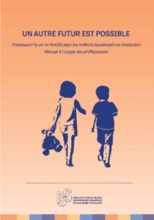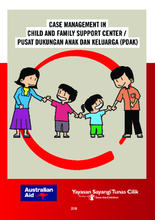Displaying 121 - 130 of 281
This brief summarises key findings of a qualitative study of the family strengthening approach of the Isibindi model.
Undertaking a connected person / family and friends assessment is designed to help social workers to manage and complete a comprehensive and evidence-based assessment of connected people / family and friends who wish to foster or be special guardians to a known child or children.
This article provides a discussion of the theoretical basis underpinning safety and risk assessment in child protection, and further describes the empirical research process involved in the development of safety and risk assessment tools and training materials for social workers in the South African child protection field.
This book presents the results of this research on more than 52,000 children placed in public care in Romania (in special protection) who receive family or residential-type protection services as well as on the children at risk of separation from their families from the source communities.
This paper analyzes the concluding sections of assessment reports on applicants for intercountry adoption in Sweden to answer the following question: what must be said about an individual or a couple in order for her/them to be seen as a suitable adoptive parent?
This article presents a systematic review of the existing knowledge of the situation of recently arrived refugee children in the host country.
The purpose of this paper is to map the current organisation and implementation of children’s services in three regions of Spain, to identify strengths and gaps and to suggest proposals for improvement in line with European recommendations.
The Household Vulnerability Assessment tool (HVAT) is for assessment of families selected through the vulnerability prioritization process. This adapted tool helps to obtain in-depth baseline information about a family’s level of vulnerability to family-child separation, which will be used for monitoring progression of FARE beneficiary families’ vulnerability to family-child separation.
Ce manuel fournit des conseils aux professionnels qui travaillent avec les enfants handicapés dans les soins en établissement.
This book introduces the PDAK – Pusat Dukungan Anak dan Keluarga (Child and Family Support Centre) in Indonesia and the case management system utilized within the centre.




